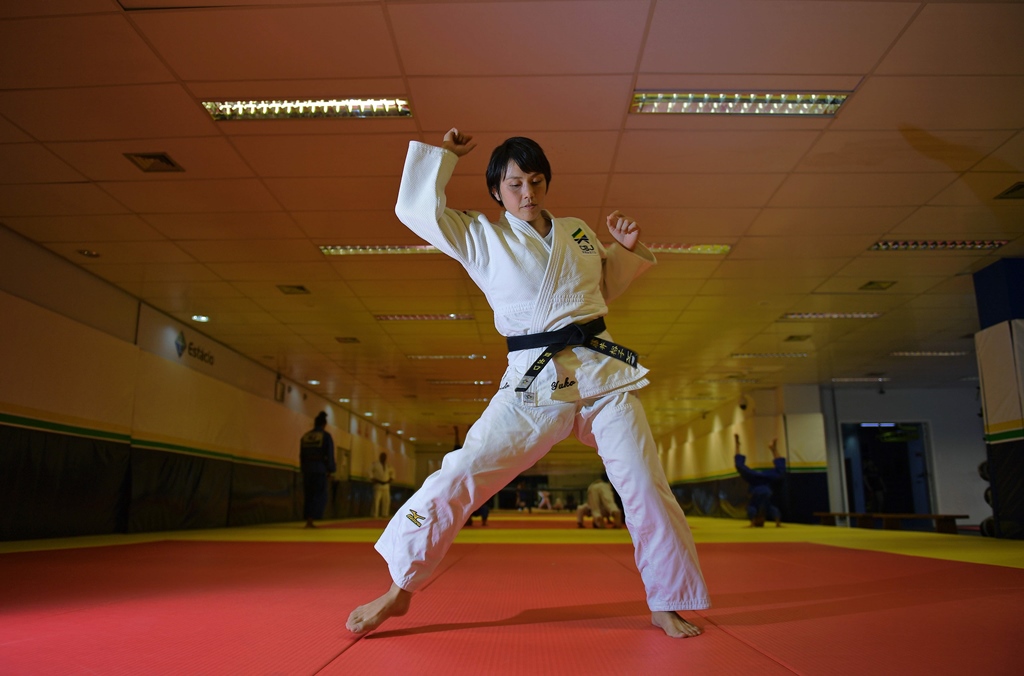
On being named to the position at the end of May, the soft-spoken, 35-year-old black belt made history — and not just in Brazil.
Fujii, who is from Japan and was previously an assistant coach with the squad, is now one of the very few women in the world to head any top-level male sports team, let alone judo.
In judo powerhouses such as France, Japan and Russia, men coach not only the male but the female athletes, and certainly in Fujii's homeland the idea of a woman taking over the men would be pretty much unimaginable.
"Japan is more traditional and macho than Brazil. The men's team doesn't have a single woman — well just one, the nutritionist," Fujii told AFP at Brazil's national training center in Rio de Janeiro.
A similar picture unfolds across much of the rest of the sporting spectrum, where female coaches of elite women are rare and female coaches of men practically non-existent.
For example, Brazil briefly had a woman, Emily Lima, coach its female football team but she was fired in 2017 and replaced by a man. The same thing happened in 2015 when Spain sacked its first ever female Davis Cup captain, Gala Leon.
Brazil's new judo coach, though, is receiving a warm welcome.
"Sensei Yuko has made quite a difference. With her as our sensei, our technical level has already improved," said Ruan Isquierdo, a giant heavyweight member of the Brazilian team, calling his coach by the Japanese honorific roughly meaning "teacher."
"I don't think, 'I'm a woman and the others are men.' I never thought about this. My focus is always: can I use my strengths to help the team?" said Fujii.
Her main goal: "For our athletes to do good judo and give everything. We'll see in the future if I was a pioneer or not!"

1725030039-0/Untitled-design-(2)1725030039-0-165x106.webp)















COMMENTS
Comments are moderated and generally will be posted if they are on-topic and not abusive.
For more information, please see our Comments FAQ